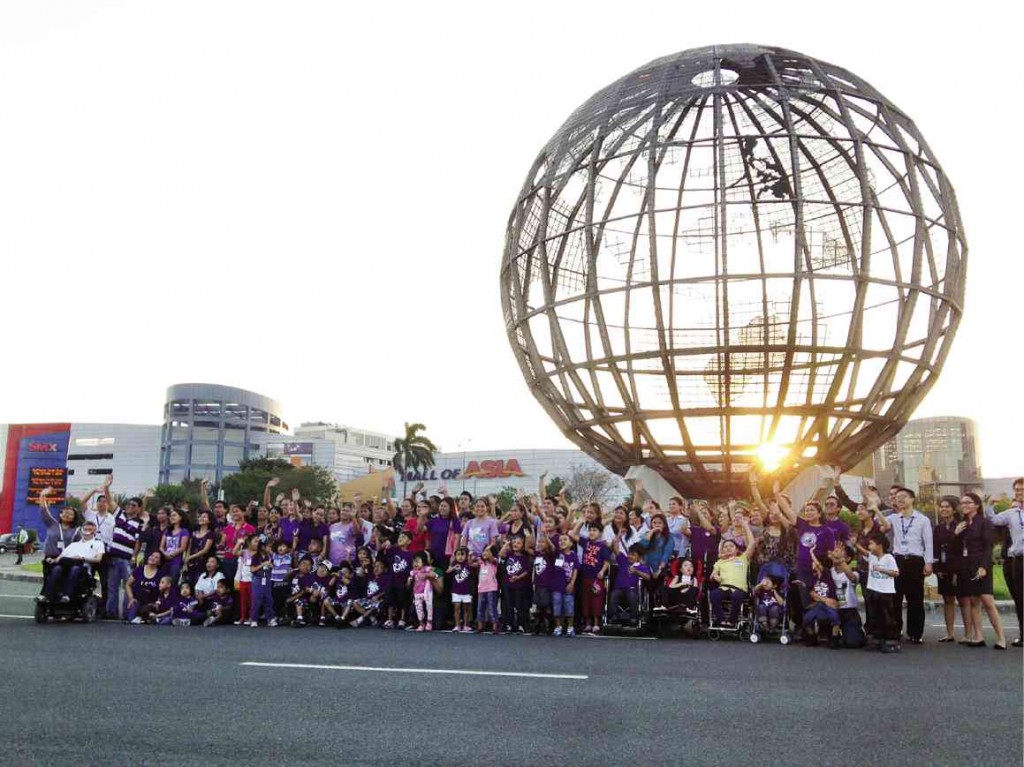Bill hopes to help Filipinos with rare diseases

GETTING their stories out: Families of children with rare diseases seek more public awareness as well as government support.
(Conclusion)
As the country observed last month the National Rare Disease Week (every fourth week of March), Sen. Pia Cayetano said a bill is now being pushed to eventually mandate the government to assist individuals with rare disease by means of increasing their access to medical treatment and drugs, and include them in the coverage of the Universal Health Care program.
According to Cayetano, under Senate Bill No. 2098, or the “Rare Disease Act of 2014,” the Department of Health (DOH) will be tasked to establish a National Rare Disease Registry, which will include an inventory of rare diseases in the country, information on diagnosed patients and a list of certified medicines and medical devices.
Interestingly, similar bills tacking rare diseases are also being pushed in the lower House by Representatives Baby Arenas, Randolph Ting, Alfred Vargas and Gus Tambunting.
A “rare disease” is one that affects less than one in every 20,000 individuals. In most cases the rare diseases manifest during childhood and are genetic in origin.
Hard time coping
Cayetano in a statement explained that patients, who are mostly children, are chronically ill and suffer from pain and isolation throughout their life. She added that their families also have a hard time coping because treatment is not only very costly but are not readily available in most hospitals and clinics.
Gaucher Disease, Maple Syrup Urine Disease, Pompe Disease, Galactosemia, Phenylketonuria, Methylmalonic Acidemia, Urea Cycle Defects, Hurler Syndrome, Hunter Syndrome, Prader-Willi Syndrome, Edward Syndrome and Patau Syndrome are just some of the rare diseases now identified in the Philippines.
Rare disease is an issue quite close to the senator considering that in 2001, Cayetano lost her youngest child Gabriel from a rare congenital condition called Trisomy 13 (also called Patau Syndrome). Babies afflicted with Trisomy 13 have a very low survival rate—Gabriel lived for nine months—because they suffer from various ailments that include poor heart conditions, kidney problem, recurring respiratory infections, gastro-intestinal problems, poor eyesight and poor hearing.
Philippine Society for Orphan Disorders (PSOD) president Cynthia Magdaraog said: “In a way, we understand how a parent like the senator would feel seeing the suffering of her own child. It is so incomparable that parents would be willing to do anything to save their child’s life.” She also has a son afflicted with Pompe disease, another type of rare condition.
Newborn screening
Both the senator and Magdaraog believe that the number of diagnosed patients with rare diseases could still rise now that the upcoming newborn screening (NBS) program of the government will be expanded to 28 rare diseases beginning this year.
Newborn screening is a procedure intended for early identification of infants who are affected by certain genetic, metabolic, or infectious conditions that may lead to mental retardation or morbidity if left untreated. The NBS in the country started in June 1996 and was integrated into the public health delivery system with the enactment of the Newborn Screening Act of 2004 (Republic Act No. 9288).
There are four NBS centers: Newborn Screening Center (NSC)-National Institutes of Health in Manila, NSC-Visayas in Iloilo City, NSC-Mindanao in Davao City and NSC-Central Luzon in Angeles City. They provide laboratory and follow-up services for more than 3,000 health facilities around the country.
From 1996 to December 2010, the program has saved 45 283 patients.
Rare disease
Furthermore, Senate Bill 2098 is also recommending the inclusion of rare disease treatment in the health benefit package of the Philippine Health Insurance Corp. with medical drugs and devices used for treating rare diseases be certified by the Food and Drugs Administration to facilitate the public’s access to these products.
Also, the same bill seeks to help patients suspected or diagnosed with rare disease to be referred to regional NSCs, which will then coordinate with the DOH and concerned medical facilities for the “co-management” of the patient with a specialist.
At present, the NBS in the country includes screening of six disorders: congenital hypothyroidism, congenital adrenal hyperplasia, phenylketonuria, glucose-6-phosphate dehydrogenase deficiency, galactosemia and maple syrup urine disease. The expanded screening will also include 22 more disorders such as hemoglobinopathies and additional metabolic disorders, namely organic acid, fatty acid oxidation, and amino acid disorders.
The formal recommendation to expand the coverage of the NBS program was prompted by the results of the study called “Enhancing case detection of selected inherited disorders through expanded newborn screening in the Philippines” and initiated by Doctors Carmencita Padilla and Tomas Aguirre of University of the Philippines Manila.
The screening of more disorders is intended to save more lives and reduce unnecessary negative health outcomes of newborn Filipinos. The data of Filipino newborns screened through the California newborn screening program from 2005 to 2009 revealed that some detected serious disorders were still not included in the existing program of the country.